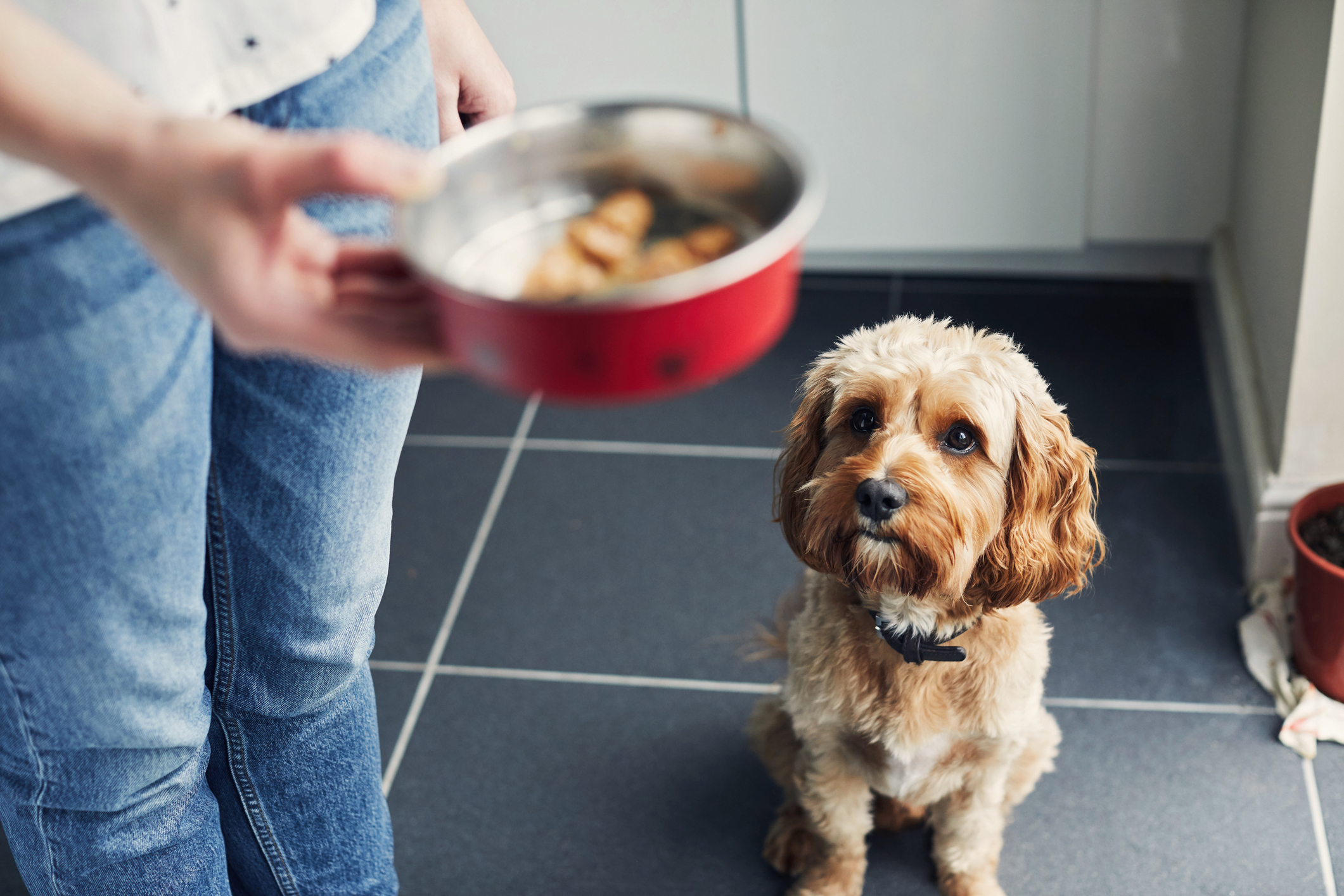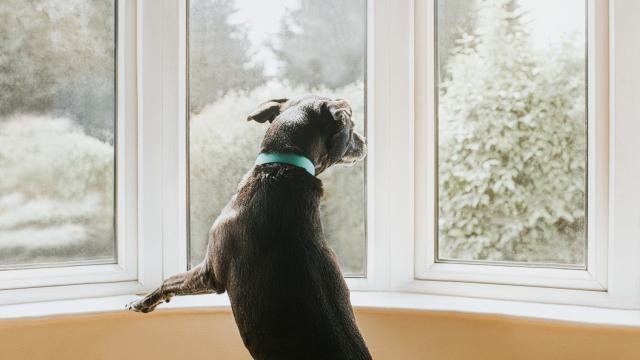If the increase in conversations about anxiety-reducing collars in my daily life is anything to go by, I’d say it’s clear people are concerned about their dogs’ stress levels right now.
With many of us heading back into the office after working from home for an age, concerns are emerging. Not about having to wear pants every day, no. People are concerned about the well-being of their beloved pooches. After becoming accustomed to your presence, it’s understandable that lil old Rex may be anxious about your extended periods of separation. And no one wants a stressed-out pup.
According to Pet Circle Head Vet, Dr Teagan Lever, “Separation anxiety is common in dogs, especially in young dogs who have never fully adapted to being separated from their owners, adult shelter or rescue dogs, and in dogs with other anxiety disorders such as noise phobias.”
Dr Lever also says that normally, roughly around one in six dogs will suffer from canine separation anxiety but with COVID restrictions lifting and most of us returning back to work, the numbers are likely to rise.
Signs of pet separation anxiety
Dr Lever identified some key signs to watch out for to determine whether or not your furry best friend is suffering from anxiety or stress.
Signs of dog anxiety prior to leaving your house
- Following you closely
- Barking, whining and vocalising
- Drooling or sweating
- Aggression in some cases
Signs of dog anxiety after you’ve left
- Howling and crying
- Not eating
- Urinating and defecating inside (if it has been toilet trained)
- Destroying furniture and objects
- Trying to escape by chewing on or scratching doors and windows
- Licking their fur more than usual
What can you do about dog anxiety?
Well, according to both the RSPCA, and Dr Teagan Lever, there are a couple of things:
Don’t make a fuss when leaving or returning home
It’s hard to ignore your dog when it gets so excited that you’ve come home but according to Dr Lever, doing so might be reinforcing its anxiety.
Try to ignore your pet for a few minutes before you leave the house and again when you return home. Wait until they have calmed down before giving them some attention.
Making a big fuss before leaving and when coming home might hype up the separation process for your pooch.
Try some training sessions
There are a few ways to approach this, and you can always chat to your vet about which ones will work best, but in a nutshell: you want to teach your dog that your departure isn’t a bad thing.
Little tricks like picking up your keys, then calmly going about your day – without leaving – can help reshape the way your dog sees those signals. The RSPCA shares that you can also use treats to communicate that your leaving is attached to a win for them. If every time you leave, you give your dog a treat or a toy and when you get home you remove it, they’ll apparently become used to having a nice distraction while you’re gone.
In saying this, there are cases where dogs can suffer from extreme anxiety and it may be best to speak with your vet about how to care best for them.

Use your time with them well
Taking your pup out for regular walks, and allowing them to experience new areas, is going to be excellent for their health overall. Anxiety levels are no different. If you’re able to take your dog out for a long run, there it is a possibility they’ll just want a rest while you’re gone, the RSPCA shares.
Keeping your dog physically active can help manage your dog’s behaviour too. According to Dr Lever, if your dog has become accustomed to long walks during lockdowns, a sudden and sharp decline in exercise may lead to an excess of pent up energy which might lead to some of that destructive behaviour.
Find them someone to hang with
Sometimes, the best move is to ensure your fur baby has someone with them. In these cases, a dog sitter or daycare facility may be your best bet.
If you aren’t able to find anyone, Dr Lever recommends leaving on some soft music or even the TV as it can help reduce their anxiety. It might also limit their reaction to unsettling noises they might hear outside.
While doggo anxiety is a very real issue that affects both pooch and owner alike, it’s encouraging to know that there are steps you can take to hopefully ease that stress somewhat. Dogs are too pure for this world; here’s hoping we can help them move through their days stress-free.
This article has been updated since its original publish date.

Leave a Reply
You must be logged in to post a comment.